Your search “Keep%20ethe%20eDeath%20ePenalty%abolished%20ein%20ethe%20ePhilippfines%20e%20e%20e%20e%20e%20e%20e%20e%20e%20e/page/www.centaurtheatre.com ”
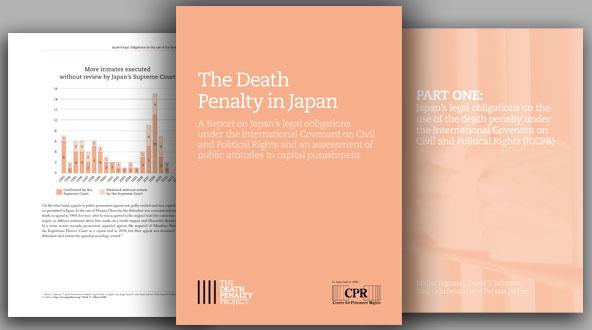
Article(s)
Japan in breach of international standards, opinion wavering – study
By Thomas Hubert, on 14 March 2013
A report published by the Death Penalty Project and the Center for Prisoners’ Rights shows that Japanese law and practice on capital punishment violate international treaties, and questions the high level of public support for the death penalty reported by the authorities.
2013
Japan
Public Opinion

Article(s)
Call for tenders for an external final evaluation
By World Coalition Against the Death Penalty, on 15 June 2021
External Evaluation of the project “Preventing the risk of resurgence of the death penalty in three abolitionist countries” of 36 months in the Maldives, Philippines and Turkey
2021
Maldives
Philippines
Turkey
Page(s)
What is the Risk that the Death Penalty Will Return in Your Country?
on 20 August 2021
This interactive tool will allow you to identify the threat levels of the resurgence of the death penalty in your country. It is based on key indicators drawn from the experience of the World Coalition’s pilot project in three countries: the Maldives, the Philippines and Turkey from 2018 to 2021.
2021
Document(s)
Blaming it on the past: Usages of the Middle Ages in contemporary discourses of the death penalty in England
By Death Penalty Research Unit (DPRU), University of Oxford, on 5 February 2024
2024
Academic Article
United Kingdom
More details See the document
Published in December 2023.
In popular, intellectual and political culture, the Middle Ages are intrinsically tied to violent images of public executions. To historians of the medieval period, this temporal attachment of the death penalty to a remote period is puzzling, especially since it is still widely enforced in the world today and was only relatively recently abolished in Europe. Capital punishment is not only a part of history, but a modern-day reality. Why, therefore, do we pin this punishment to the Middle Ages? This paper aims to analyse the discourses surrounding the usage of the Middle Ages in modern discussions on the death penalty, and to clarify medieval practices of capital punishment, showing how remote they are from our contemporary understanding
- Document type Academic Article
- Countries list United Kingdom
Document(s)
The Death Penalty in the OSCE Area: Background Paper 2020
By Organization for Security and Co-operation in Europe (OSCE), on 9 October 2020
2020
Regional body report
Belarus
United States
ruMore details See the document
This paper updates The Death Penalty in the OSCE Area: Background Paper 2019. It is intended to provide a concise update to highlight changes in the status of the death penalty in OSCE participating States since the previous publication and to promote constructive discussion of the issue. It covers the period from 1 April 2019 to 31 March 2020. Special Focus: Is the death penalty inherently arbitrary?
- Document type Regional body report
- Countries list Belarus / United States
- Available languages Смертная казнь в регионе ОБСЕ: Справочный документ 2020 года
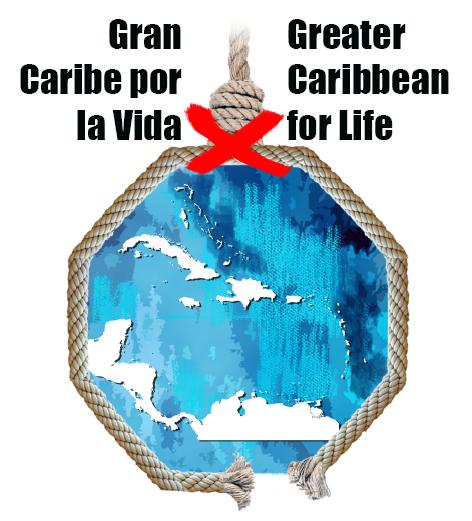
Article(s)
The Greater Caribbean for Life rejects the call for the resumption of the death penalty
By Leela Ramdeen, on 9 November 2017
The Greater Caribbean for Life (GCL), an independent, not-for-profit regional civil society organization working towards the abolition of the Death Penalty in the region, rejects the recommendation for the resumption of the death penalty.
2017
Article(s)
US Supreme Court revives “failed” death penalty
on 17 April 2008
The World Coalition condemns the April 16th decision of the United States Supreme Court upholding the lethal injection as a humane method of executing a human being.
2008
Moratorium
United States
Article(s)
800 cities light up for life
on 17 November 2008
On November 30, monuments in nearly 800 cities across the globe will light up to celebrate “Cities for Life – Cities Against the Death Penalty”.
2008
Italy
Public Opinion
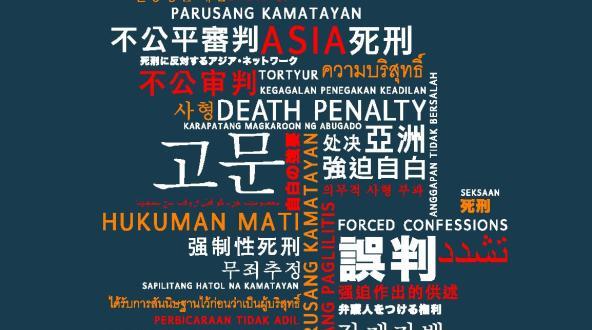
Article(s)
Asia: Stop executions and unfair trials
By ADPAN, on 6 December 2011
A hard-line group of Asian countries are defying the global trend against the death penalty and putting to death thousands of people after unfair trials every year, the Anti-Death Penalty Asia Network (ADPAN) said today in a new report.
2011
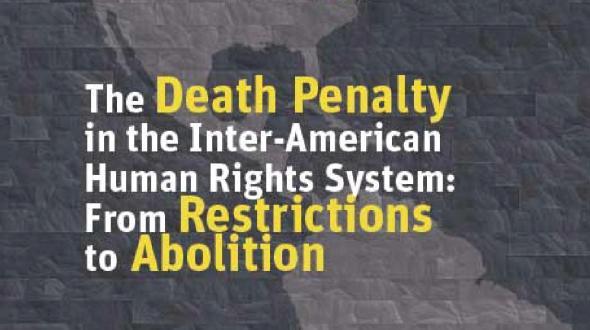
Article(s)
From restrictions to abolition
By World Coalition Against the Death Penalty, on 17 August 2012
The Inter-American Commission on Human Rights has published a new report and called for abolition of the death penalty.
2012
Antigua and Barbuda
Argentina
Bahamas
Barbados
Belize
Bolivia (Plurinational State of)
Brazil
Canada
Chile
Colombia
Costa Rica
Cuba
Dominica
Dominican Republic
Ecuador
El Salvador
Grenada
Guatemala
Guyana
Haiti
Honduras
Jamaica
Mexico
Nicaragua
Panama
Paraguay
Peru
Saint Kitts and Nevis
Saint Lucia
Saint Vincent and the Grenadines
Trinidad and Tobago
United States
Uruguay
Venezuela (Bolivarian Republic of)
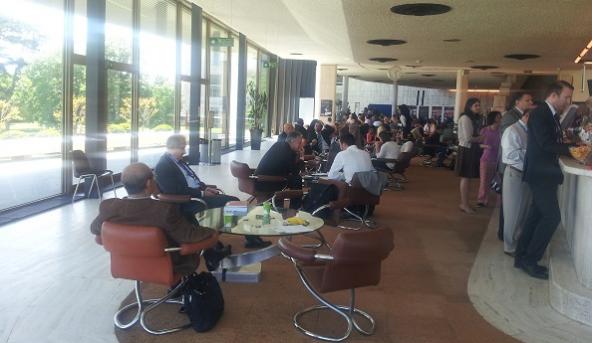
Article(s)
Abolitionist NGOs lobby to educate UN member states in Geneva
By Aurélie Plaçais, on 22 April 2015
Several World Coalition members carried out intense advocacy activities during and after the March session of the Human Rights Council to prepare for the coming UPR session, during which Liberia, Malawi and the USA will be examined.
2015
Document(s)
Ambivalent Abolitionism in the 1920s: New South Wales, Australia
By Carolyn Strange, on 1 September 2022
2022
Academic report
Australia
More details See the document
In the former penal colony of New South Wales (NSW), a Labor government attempted what its counterpart in Queensland had achieved in 1922: the abolition of the death penalty. Although NSW’s unelected Legislative Council scuttled Labor’s 1925 bill, the party’s prevarication over capital punishment and the government’s poor management of the campaign thwarted abolition for a further three decades. However, NSW’s failure must be analysed in light of ambivalent abolitionism that prevailed in Britain and the US in the postwar decade. In this wider context, Queensland, rather than NSW, was the abolitionist outlier.
This article was first published in Crime Justice Journal: https://www.crimejusticejournal.com/issue/view/119
- Document type Academic report
- Countries list Australia
Article(s)
Web-Editor
By World Coalition Against the Death Penalty, on 9 October 2018
The World Coalition Against the Death Penalty is recruiting a Web-editor/Editorial Webmaster for its website.
2018
Article(s)
Web-Editor
By World Coalition Against the Death Penalty, on 17 October 2016
The World Coalition Against the Death Penalty is recruiting a Web-editor for its website.
2016
Article(s)
A World Without the Death Penalty – IX Congress of the Ministers of Justice
By Federica Merenda, on 29 February 2016
On 22 February 2016, the representatives of more than twenty countries gathered in Rome for the 9th International Congress of the Ministers of Justice « A World without the death penalty », organized by the Community of Sant’Egidio and hosted by the Italian Chamber of Deputies. Burundi, Cambodia, Central African Republic, Congo, El Salvador, Guinea Conakry, Cȏte d’Ivoire, Mali, Mongolia, Rwanda, Somalia, Sri Lanka, South Africa, Timor-Leste, Togo, Uganda, Viet Nam, Zimbabwe are the countries who joined Italy in the last edition of this annual conference.
2016
Article(s)
Translations in Chinese
By World Coalition Against the Death Penalty, on 21 January 2013
The World Coalition Against the Death Penalty’s office in Paris, France, is currently calling for translation contributions in Chinese.
The objective is to award contracts for translation services for the publications of the World Coalition Against the Death Penalty for 30 months (mid 2013 – mid 2015).
2013

Article(s)
Lindy Lou Juror #2
By Clémentine Etienne, on 31 July 2018
On the occasion of the screening of the movie Lindy Lou Juror number 2 on Monday 25 June 2018, abolitionist associations such as Amnesty International, ACAT France, Together Against The Death Penalty French Collectif Free Mumia! and the World Coalition against the Death Penalty met at the Centre Wallonie Bruxelles in Paris.
2018
Public Opinion
United States

Article(s)
Ten films to expose innocence on death row
By Laura Shacham - One for Ten, on 29 April 2013
One For Ten is a series of short documentary films telling the stories of innocent people who were on death row in the United States, with support from the World Coalition and several of its members.
2013
Innocence
United States
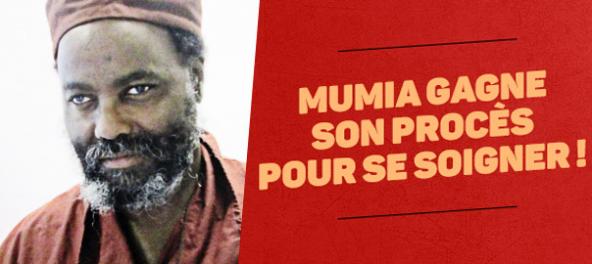
Article(s)
Federal Justice orders the prison administration to immediately provide African-American journalist Mumia Abu-Jamal with treatment
By French Collective "Free Mumia", on 18 January 2017
On the 3rd January of this year, a Federal judge ordered Pennsylvania’s prison administration to immediately provide Mumia Abu-Jamal with medication to treat his hepatitis C infection, justifying his decision in these terms: “budgetary constraints cannot outweigh the Eighth Amendment’s constitutional guarantee of adequate medical care.”
2017
Cruel, Inhuman and Degrading Treatment and Punishment
United States
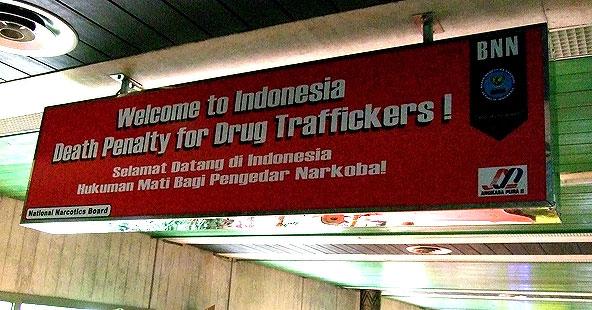
Article(s)
Indonesia: execution for drug crimes is no solution
By World Coalition Against the Death Penalty, on 26 January 2015
In an open letter, the World Coalition and its members, including KONTRAS and Amnesty International, condemn the Indonesian government’s politicizing of the death penalty to show its commitment to eradicating drug-related crimes. Recent resumptions of executions show one thing, they are carried out for political reasons only: in Pakistan to show that it is tough on terrorism, Jordan that it tough on crime and Indonesia that it is tough on drugs. Instead, those states should abolish the death penalty to show their commitment to upholding human rights. The next World Day against the Death Penalty will be dedicated to the issue of capital drug crimes.
2015
Drug Offenses
Indonesia
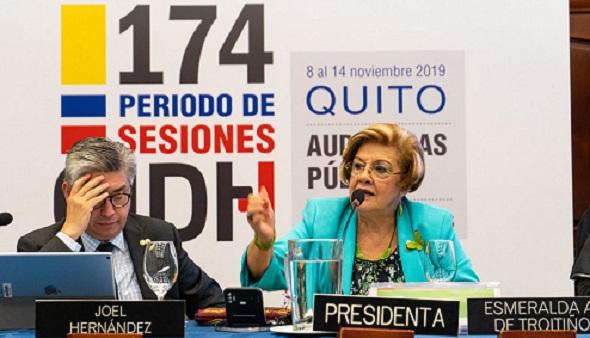
Article(s)
The Inter-American system commits to see the end of the death penalty
By World Coalition Against the Death Penalty, on 13 January 2020
In November 2019, Ecuador hosted a series of high level meetings of the Organisation of American States (OAS), including the Third Forum of the Inter-American Human Rights System and the 174th Period of Sessions of the Inter-American Commission on Human Rights (IACHR), during which abolition of the death penalty was on the agenda.
2020

Article(s)
Bahrain: Joint appeal for commutation and moratorium
By Salam for Democracy and Human Rights, on 13 January 2022
Joint Appeal was published on World Day Against the Death Penlaty on 10 October 2021 and sent to the Bahraini Embassy in France, UK and Switzerland.
2022
Bahrain
Clemency
Moratorium
Article(s)
Research Assistant
By Death Penalty Worldwide, Cornell Law School and World Coalition Against the Death Penalty, on 8 February 2016
Death Penalty Worldwide of Cornell University Law School and the World Coalition Against the Death Penalty invite applications for a five-month internship placement in Paris from March to July 2016.
2016
Document(s)
2021 OHCHR Report on Deterrence: High-level panel discussion on the question of the death penalty
By Office of the High Commissioner for Human Rights (OHCHR), on 14 January 2022
2022
United Nations report
Public Opinion
aresfrruzh-hantMore details See the document
The present report is submitted pursuant to Human Rights Council resolutions 26/2 and 42/24. It provides a summary of the high-level panel discussion on the question of the death penalty held on 23 February 2021 at the forty-sixth session of the Council. The panel discussion addressed the human rights violations related to the use of the death penalty, in particular with respect to whether the use of the death penalty has a deterrent effect on crime rates.
- Document type United Nations report
- Themes list Public Opinion
- Available languages حلقة نقاش رف عة المستوى بشأن مسألة عقوبة الإعدامInforme de la OACDH 2021 sobre el efecto disuasorio : Mesa redonda de alto nivel sobre la cuestión de la pena de muerteRapport HCDH 2021 sur l'effet dissuasif : Réunion-débat de haut niveau sur la question de la peine de mortОбсуждение в рамках дискуссионной группы высокого уровня вопроса о смертной казни,способствует ли ее применение сдерживанию преступности2021年联合国威慑效应报告 - 关于死刑问题的高级别专题小组讨论会
Document(s)
Leaflet – World Day 2022
By the World Coalition Against the Death Penalty, on 24 June 2022
2022
World Coalition
arfrMore details Download [ pdf - 1095 Ko ]
Leaflet for the 20th World Day against the death penalty (2022), on torture and the death penalty.
- Document type World Coalition
- Available languages للیوم العالمي لمناھضة عقوبة الإعدام كتيب باللغة العربيةBrochure - Journée mondiale 2022

Member(s)
Coalition of Somali Human Rights Defenders CSHRD
on 24 July 2024
The Coalition of Somali Human Rights Defenders (CSHRD) is an organization dedicated to promoting and protecting human rights in Somalia. CSHRD was established in 2014. CSHRD runs holistic and comprehensive torture victims rehabilitation centre in Somalia. CSHRD work is guided by the Universal Declaration of Human Rights UDHR and the SDGs of 1, 5, 10, […]
2024
Somalia
Document(s)
Facts and Figures 2007
By World Coaliton against the death penalty , on 10 October 2009
2009
Campaigning
Trend Towards Abolition
frMore details Download [ pdf - 24 Ko ]
Facts and Figures 2007
- Document type Campaigning
- Themes list Trend Towards Abolition
- Available languages Faits et chiffres 2007
Document(s)
Debunking the deterrence theory
By World coalition against the death penalty, on 9 July 2024
2024
Campaigning
World Coalition
frMore details Download [ pdf - 593 Ko ]
- Document type Campaigning / World Coalition
- Available languages La théorie de la dissuasion démystifiée
Document(s)
The Modern Federal Death Penalty: A Cruel and Unusual Penalty
By Hannah Freedman, on 1 September 2022
2022
Academic report
Cruel, Inhuman and Degrading Treatment and Punishment
United States
More details See the document
The federal death penalty today would be unrecognizable to the founders, who saw the ultimate penalty as a means of protecting sovereign interests and who therefore carefully guarded the practice at English common law of yielding national interests to local ones. Over the course of time, the geographic distribution and substantive basis for the penalty changed, but until the modern era, its underlying purpose did not. As the Trump era executions made painfully clear, however, the federal death penalty today is different. It is disproportionately imposed for crimes that could have readily been prosecuted by other jurisdictions and that have little obvious connection to federal sovereignty, and it is disproportionately imposed against non-white people. By any rational measure, it is vanishingly rare, and it serves no valid penological goal. Simply put, federal death sentences today are, in most cases, “cruel and unusual in the same way that being struck by lightning is cruel and unusual.”
- Document type Academic report
- Countries list United States
- Themes list Cruel, Inhuman and Degrading Treatment and Punishment

Member(s)
The American Constitution Society (ACS)
on 5 September 2022
The American Constitution Society (ACS) is a United States-based network of progressive lawyers, law students, judges, policymakers, legislators, and academics dedicated to realizing the promises of the U.S. Constitution by advancing and defending democracy, justice, equality, and liberty; securing a government that serves the public interest; and guarding against the abuse of law and the […]
2022
United States
Document(s)
“No One Believed Me”: A Global Overview of Women Facing the Death Penalty for Drug Offenses
on 5 October 2021
2021
NGO report
Drug Offenses
Women
frMore details See the document
“No one believed me” is a quote from Merri Utami, who was sentenced to death for drug trafficking in Indonesia in 2002. Her quote reflects the injustices faced by women accused of capital drug offenses around the world: many decision-makers disbelieve women’s plausible innocence claims or discount the effects of relationships and economic instability on women’s decisions to traffic drugs.
Document(s)
Right Here, Right Now Life Stories from America’s Death Row
By Lynden Harris, on 10 August 2021
2021
Book
Death Row Conditions
United States
More details See the document
Upon receiving his execution date, one of the thousands of men living on death row in the United States had an epiphany: “All there ever is, is this moment. You, me, all of us, right here, right now, this minute, that’s love.”
Right Here, Right Now collects the powerful, first-person stories of dozens of men on death rows across the country. From childhood experiences living with poverty, hunger, and violence to mental illness and police misconduct to coming to terms with their executions, these men outline their struggle to maintain their connection to society and sustain the humanity that incarceration and its daily insults attempt to extinguish.
By offering their hopes, dreams, aspirations, fears, failures, and wounds, the men challenge us to reconsider whether our current justice system offers actual justice or simply perpetuates the social injustices that obscure our shared humanity.
- Document type Book
- Countries list United States
- Themes list Death Row Conditions
Document(s)
Leaflet – World Day 2024 & 2025
By World coalition against the death penalty, on 10 June 2024
2024
Campaigning
World Coalition
frMore details Download [ pdf - 1325 Ko ]
Every 10th October, the World Coalition Against the Death Penalty and abolitionist actors worldwide celebrate the World Day Against the Death Penalty. It is an occasion to highlight the progress achieved in the global campaign for the abolition of capital punishment. In 2024 and 2025, the World Day will serve as an opportunity to challenge […]
- Document type Campaigning / World Coalition
- Available languages Brochure - Journée mondiale 2024 & 2025
Document(s)
Capital punishment and implementation of the safeguards guaranteeing protection of the rights of those facing the death penalty
By United Nations , on 26 May 2021
2021
United Nations report
aresfrruzh-hantMore details See the document
Summary
In its resolution 1745 (LIV) of 16 May 1973, the Economic and Social Council invited the Secretary-General to submit to it, at five-year intervals starting from 1975, periodic updated and analytical reports on capital punishment. The Council, in its resolution 1995/57 of 28 July 1995, recommended that the quinquennial reports of the Secretary-General continue to cover also the implementation of the safeguards guaranteeing protection of the rights of those facing the death penalty.
In the same resolution, the Council requested the Secretary-General, in preparing the quinquennial report, to draw on all available data, including current criminological research. The present report, which is the tenth quinquennial report, contains a review of the use of and trends in capital punishment, including the implementa tion of the safeguards during the period 2014–2018.
In accordance with resolutions 1745 (LIV) and 1990/51, of 24 July 1990, of the Economic and Social Council, as well as its decision 2005/247 of 22 July 2005, the present report is submitted to the Council at its substantive session of 2020, and will also be before the Commission on Crime Prevention and Criminal Justice at its twenty-ninth session and the Human Rights Council at its forty-fourth regular session.
The report on the 2014–2018 quinquennium confirms the trend documented in previous reports towards abolition and restriction of the use of capital punishment in most countries. The number of States that have abolished the death penalty in law and in practice continued to grow. This is reflected in the increased number of States bound by treaty obligations not to implement the death penalty. The quinquennium also witnessed some years of dramatic increases in the number of executions, which were carried out by a small number of States. The situation stabilized at the end of the survey period, and the number of recorded executions in the final year, 2018, was the lowest in many years. The safeguards guaranteeing the protection of the rights of those facing the death penalty apply to States that retain capital punishment. It is of concern, however, that the death penalty continued to be imposed on persons below 18 years of age at the time of commission of the offence, and that death sentences were imposed in cases where the “most serious crimes” standard was not met and in cases of trials that did not comply with international standards.
- Document type United Nations report
- Available languages عقوبة اإلعدام وتنفيذ الضمانات التي تكفل حماية حقوق من يواجهون عقوبة اإلعدامLa pena capital y la aplicación de las salvaguardias para garantizar la protección de los derechos de las personas condenadas a la pena de muertePeine capitale et application des garanties pour la protection des droits des personnes passibles de la peine de mortСмертная казнь и применение мер, гарантирующих защиту прав тех, кому грозит смертная казнь死刑和保护死刑犯权利的保障措施的执行情况
Document(s)
Efforts towards abolition of the death penalty: Challenges and prospects
By Death Penalty Research Unit (DPRU), University of Oxford, on 5 February 2024
2024
Academic Article
Trend Towards Abolition
More details See the document
Published in December 2023.
This paper reflects on the role of international human rights treaties in promoting universal abolition and progressive restriction of the death penalty. It suggests that over the past quarter of a century a ‘new human rights dynamic’ has aimed to generate universal acceptance that however it is administered, the death penalty violates the human rights of all citizens exposed to it. Nevertheless, defences of capital punishment based on principles of national sovereignty are engrained in some parts of the world, particularly in Asia and the Middle East. The human rights project struggles to make inroads into such jurisdictions where political will is opposed to abolition, and trenchant protection of sovereignty threatens the very universality of these rights.
- Document type Academic Article
- Themes list Trend Towards Abolition
Document(s)
Facts and Figures 2011
By World Coalition against the death penalty , on 10 October 2011
2011
Campaigning
Trend Towards Abolition
frMore details Download [ pdf - 100 Ko ]
Facts and Figures 2011
- Document type Campaigning
- Themes list Trend Towards Abolition
- Available languages Faits et chiffres 2011
Document(s)
Facts and Figures 2009
By World Coalition against the death penalty , on 10 October 2009
2009
Campaigning
Trend Towards Abolition
frMore details Download [ pdf - 95 Ko ]
Facts and Figures 2009
- Document type Campaigning
- Themes list Trend Towards Abolition
- Available languages Faits et chiffres 2009
Document(s)
Facts and Figures 2010
By World Day against the death penalty , on 10 October 2010
2010
Campaigning
Trend Towards Abolition
frMore details Download [ pdf - 81 Ko ]
Facts and Figures 2010
- Document type Campaigning
- Themes list Trend Towards Abolition
- Available languages Faits et chiffres 2010
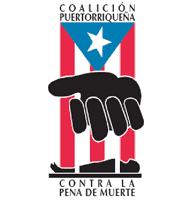
Member(s)
Puerto Rican Coalition Against Death Penalty
on 30 April 2020
The Puerto Rican Coalition against the Death Penalty (PCADP) is a non-party, non-sectarian organisation incorporated in Puerto Rico in March 2005 to promote the elimination of the capital punishment.The PCADP aims to join efforts among the different abolitionist organisations and activists in Puerto Rico. Its Statement of Principles emphasises that it does not believe in […]
2020
Puerto Rico

Member(s)
Association Justice et Miséricorde (AJEM)
on 30 April 2020
The Association Justice and Mercy (AJEM) is a Lebanese nonprofit, nonpolitical and nonsectarian nongovernmental organization (NGO) created in 1996 at the initiative of a group of social workers. AJEM deals mainly with the right of prisoners in Lebanon, and more generally with human rights, the fight against torture and other cruel, inhuman and degrading treatment, […]
Lebanon
Document(s)
Impact of the World Coalition’s Strategic Plan 2018–2022
By World Coalition Agianst the Death Penalty, on 22 August 2023
2023
World Coalition
Trend Towards Abolition
frMore details Download [ pdf - 265 Ko ]
- Document type World Coalition
- Themes list Trend Towards Abolition
- Available languages Impact du Plan stratégique 2018-2022 de la Coalition Mondiale
Document(s)
Death Penalty in India – Annual Statistics Report 2021
By Project 39A, on 4 February 2022
2022
Academic report
India
More details See the document
Project 39A at the National Law University, Delhi published the sixth edition of the Death Penalty in India: Annual Statistics Report which provides an annual update on the use of the death penalty in India along with legislative and international developments on the issue. As on 31st December 2021, there were 488 prisoners on death row across India (a steep rise of nearly 21% from 2020), with Uttar Pradesh having the highest number at 86. This is the highest the death row population has been since 2004 as per the data from the Prison Statistics published by the National Crime Records Bureau.
- Document type Academic report
- Countries list India
Document(s)
Children, Youth and the Death Penalty
By International Commission against the Death Penalty, on 23 June 2023
2023
NGO report
Juveniles
More details See the document
ICDP announces the launch of its latest report: Children, Youth and the Death Penalty. The issue of how the death penalty affects children and youth is often ignored by policy makers. This report aims to change that by putting the protection of children’s rights at the center of the debate on the death penalty.
The report builds on the panel discussion titled “Youth and the Death Penalty,” which was organized by the International Commission against the Death Penalty (ICDP) and the Government of Australia. The discussion was held on 29 June 2022, at the sidelines of the 50th session of the UN Human Rights Council, in Geneva.
- Document type NGO report
- Themes list Juveniles
Document(s)
Leaflet Lobbying
By World Coalition against the death penalty , on 10 October 2007
2007
Campaigning
Trend Towards Abolition
frMore details See the document
Leaflet Lobbying
- Document type Campaigning
- Themes list Trend Towards Abolition
- Available languages Brochure Lobbying 2007

Member(s)
Reprieve
on 30 April 2020
Reprieve is a small, feisty registered charitable organisation of human rights defenders. Our strategy is to use strategic interventions to end the use of the death penalty globally, and to end extreme human rights abuses carried out in the name of “counterterrorism” or “national security” We work for among the most disenfranchised people in society, […]
2020
United Kingdom
Document(s)
Ethiopia – Committee Against Torture (LOI) – Death Penalty – June 2022
on 21 July 2022
2022
NGO report
World Coalition
Ethiopia
More details Download [ pdf - 1447 Ko ]
This report addresses Ethiopia’s compliance with its human rights obligations with regard to the death penalty. Although there are currently at least 147 people on death row in Ethiopia, the country has not carried out any executions during the reporting period and has also pardoned and released 41 additional death row inmates since that time.[1] The Federal Supreme Court of Ethiopia has also issued sentencing guidelines that purport to further reduce the likelihood of persons being sentenced to death as a punishment for their crimes.[2] Nonetheless, Ethiopia has not taken concrete steps to reduce the number of crimes eligible for the death penalty, and the use of torture and other due process violations related to judicial proceedings render all death sentences arbitrary.
- Document type NGO report / World Coalition
- Countries list Ethiopia
Document(s)
Killing in the Name of God: State-sanctioned Violations of Religious Freedom
By Eleos Justice, Monash University, on 10 November 2021
2021
Academic report
Brunei Darussalam
Iran (Islamic Republic of)
Maldives
Mauritania
Nigeria
Qatar
Saudi Arabia
Somalia
United Arab Emirates
Yemen
More details See the document
As of 2020, blasphemy was formally criminalised in some 84 countries. As many as 21 countries criminalised apostasy as of 2019. The legal penalties for such offences range from fines to imprisonment to corporal punishment—and in at least 12 countries, the death penalty.
This report examines the extent to which States commit, or are complicit in, killings that violate religious freedom. Focussing on the 12 States in which offences against religion are lawfully punishable by death, we examine four different types of State-sanctioned killings on the basis of religious offence (apostasy, blasphemy, or alike) or affiliation (most commonly, membership of a religious minority): judicial executions, extrajudicial killings, killings by civilians, and killings by extremist groups. We explore the relationship between the retention of the death penalty for religious offences and other forms of State-sanctioned killings motivated by alleged religious offending or by religious identity.
- Document type Academic report
- Countries list Brunei Darussalam / Iran (Islamic Republic of) / Maldives / Mauritania / Nigeria / Qatar / Saudi Arabia / Somalia / United Arab Emirates / Yemen
Document(s)
The Death Penalty in 2021: Year End Report
By Death Penalty Information Center, on 14 January 2022
2022
NGO report
United States
More details See the document
The death penalty in the USA in 2021 was defined by two competing forces: the continuing long-term erosion of capital punishment across most of the country, and extreme conduct by a dwindling number of outlier jurisdictions to continue to pursue death sentences and executions.
- Document type NGO report
- Countries list United States
Document(s)
A/HRC/48/L.17/Rev.1 Resolution adopted by the Human Rights Council
on 2 June 2021
2021
International law - United Nations
aresfrruzh-hantMore details See the document
- Document type International law - United Nations
- Available languages A/HRC/48/L.17/Rev.1 قرار اعتمده جملس حقوق اإلنسايفA/HRC/48/L.17/Rev.1 Resolución aprobada por el Consejo de DerechosA/HRC/48/L.17/Rev.1 Résolution adoptée par le Conseil des droits de l’hommeA/HRC/48/L.17/Rev.1 Резолюция, принятая Советом по правам человекаA/HRC/48/L.17/Rev.1 人权理事会 月 日通过的决议
Document(s)
Leaflet – World Day 2023
on 12 June 2023
2023
Campaigning
World Coalition
arfrMore details Download [ pdf - 1095 Ko ]
Leaflet for the 21th World Day against the death penalty (2023), on torture and the death penalty.
- Document type Campaigning / World Coalition
- Available languages كتيب - اليوم العالمي 2023Brochure - Journée mondiale 2023
Document(s)
21st World Day – Facts and Figures 2023
By the World Coalition Against the Death Penalty, on 12 June 2023
Campaigning
World Coalition
frMore details Download [ pdf - 239 Ko ]
Find the main facts and figures regarding the death penalty worldwide in 2022 and early 2023.
- Document type Campaigning / World Coalition
- Available languages 21ème Journée Mondiale - Faits et chiffres 2023
Document(s)
Facts and Figures 2022
By the World Coalition Against the Death Penalty, on 24 June 2022
2022
World Coalition
frMore details Download [ pdf - 241 Ko ]
Find the main facts and figures regarding the death penalty worldwide in 2021 and early 2022.
- Document type World Coalition
- Available languages Faits et chiffres 2022
Document(s)
2021 World Day Report
on 10 June 2022
2022
World Coalition
Women
frMore details Download [ pdf - 4154 Ko ]
On 10 October 2021, the World Coalition and abolitionists around the world celebrated the 19th World Day Against the Death Penalty (‘World Day’). Every year on World Day, the World Coalition highlights one problematic aspect of the Death Penalty. In 2021, the World Day explored the theme “Women sentenced to death, an invisible reality” to raise awareness on how the treatment of gender and gender-based inequalities create particularly precarious conditions for women sentenced to capital punishment. This report presents the activities organised for the 19th World Day and the media coverage it received.
- Document type World Coalition
- Themes list Women
- Available languages Rapport journée mondiale 2021
Document(s)
Broken Promises: How a History of Racial Violence and Bias Shaped Ohio’s Death Penalty
By Death Penalty Information Center , on 14 May 2024
2024
NGO report
Fair Trial
Innocence
Trend Towards Abolition
United States
More details See the document
In January 2024, Ohio lawmakers announced plans to expand the use of the death penalty to permit executions with nitrogen gas, as Alabama had just done a week earlier. But at the same time the Attorney General and the Ohio Prosecuting Attorneys Association are championing this legislation, a bipartisan group of state legislators has introduced a bill to abolish the death penalty based on “significant concerns on who is sentenced to death and how that sentence is carried out.” The competing narratives make it more important than ever for Ohioans to have a meaningful, accurate understanding of how capital punishment is being used, including whether the state has progressed beyond the mistakes of its past.
- Document type NGO report
- Countries list United States
- Themes list Fair Trial / Innocence / Trend Towards Abolition
Document(s)
Estimating the effect of death penalty moratoriums on homicide rates using the synthetic control method
By Stephen N. Oliphant, on 18 September 2022
2022
Academic report
Moratorium
United States
More details See the document
Research examining death penalty deterrence has been characterized as inconclusive and uninformative. The present analysis heeds a recommendation from prior research to examine single-state changes in death penalty policy using the synthetic control method. Data from the years 1979–2019 were used to construct synthetic controls and estimate the effects of death penalty moratoriums on homicide rates in Illinois, New Jersey, Washington, and Pennsylvania. Moratoriums on capital punishment resulted in nonsignificant homicide reductions in all four states.
- Document type Academic report
- Countries list United States
- Themes list Moratorium
Member(s)
Mouvance des Abolitionnistes du Congo Brazzaville
on 30 April 2020
Mandate and Objectives: – Promote fundamental human rights : LIFE , EDUCATION, ACCESS TO WATER AND ELECTRICITY – Making human rights in daily lives – Fighting for universal abolition of the death penalty, starting in Congo Brazzaville by a national moratorium Types of action: – Exhibitions and screenings – Lectures, discussion and citizen petition, Sit-in […]
2020
Congo
Document(s)
Facts and Figures 2013
on 10 October 2013
2013
Campaigning
Trend Towards Abolition
aresMore details Download [ pdf - 115 Ko ]
Facts and Figures world day against the death penalty 2013
- Document type Campaigning
- Themes list Trend Towards Abolition
- Available languages Faits et chiffres 2013PENA DE MUERTE HECHOS Y DATOS
Document(s)
Co-Sponsorship, Note Verbale, and Association Behaviour at the Unga: An Analysis of the Death Penalty Moratorium Resolutions
By Daniel Pascoe & Sangmin Bae, on 22 April 2021
2021
Academic report
Moratorium
More details See the document
Since December 2007, seven resolutions in favour of a universal moratorium on death penalty executions have been adopted by the UN General Assembly. In an earlier paper (Pascoe and Bae 2020) we examined UN member states’ voting patterns over these seven resolutions, asking why some countries vote in a manner seemingly contradictory to their domestic death penalty practices. With a slightly different focus, we now further explore idiosyncratic state behaviour, this time through an analysis of co-sponsorship and the note verbale of dissociation. Our assumption is that states which plan to vote ‘yes’ in the plenary will also co-sponsor the resolution beforehand. We also presume that states which vote ‘no’ in the plenary will sign the note verbale invariably circulated several months later, as a further means of condemnation.
However, when it comes to the moratorium resolutions, not all member states fit into either of these binary categories. Many countries situate themselves in between the two groups of ‘genuine’ supporters and opponents. These countries in the middle evince inconsistency between their plenary votes and what we term their ‘association behaviour’ before or after the plenary, consisting of co-sponsorship and adherence to the note verbale. This paper analyses these groups of countries to determine the underlying causes for their ambivalent, or even contradictory, positions concerning the moratorium resolutions. The findings of this research stand to enrich not only the academic literature on international organizations, but also to inform the campaigning efforts of abolitionist UN member states and non-governmental organizations.
- Document type Academic report
- Themes list Moratorium
Document(s)
Framing Death Penalty Politics in Malaysia
By Thaatchaayini Kananatu, on 1 September 2022
2022
Academic report
Malaysia
More details See the document
The death penalty in Malaysia is a British colonial legacy that has undergone significant scrutiny in recent times. While the Malaysian Federal Constitution 1957 provides that ‘no person shall be deprived of his life or personal liberty save in accordance with law’, there are several criminal offences (including drug-related crimes) that impose the mandatory and discretionary death penalty. Using Benford and Snow’s framing processes, this paper reviews death penalty politics in Malaysia by analysing the rhetoric of abolitionists and retentionists. The abolitionists, comprising activist lawyers and non-government organisations, tend to use ‘human rights’ and ‘injustice’ frames, which humanise the ‘criminal’ and gain international support. The retentionists, such as victims’ families, use a ‘victims’ justice’ frame emphasising the ‘inhuman’ nature of violent crimes. In addition, the retentionist state shifts between ‘national security’ and ‘national development’ frames. This paper finds that death penalty politics in Malaysia is predominantly a politics of framing.
This article was first published in Crime Justice Journal: https://www.crimejusticejournal.com/issue/view/119
- Document type Academic report
- Countries list Malaysia
Document(s)
Anti–Death Penalty Advocacy: A Lawyer’s View from Australia
By Julian McMahon SC, on 1 September 2022
Article
Australia
More details See the document
This article reviews the executions of Australians in the region and the Australian responses over the past two decades. Informed by the author’s legal defence role in death penalty cases in Singapore and Indonesia and other countries, the article explores developments in anti–death penalty advocacy since 2015: the parliamentary enquiry, the ‘whole of government’ strategy led by the Department of Foreign Affairs and Trade and the efforts made by Australia and Australians in Asia.
This article was first published in Crime Justice Journal: https://www.crimejusticejournal.com/issue/view/119
- Document type Article
- Countries list Australia
Document(s)
‘Upholding the Cause of Civilization’: The Australian Death Penalty in War and Colonialism
By Mark Finnane, on 1 September 2022
Academic report
Australia
More details See the document
The abolition of the death penalty in Queensland in 1922 was the first in Australian jurisdictions, and the first in the British Empire. However, the legacy of the Queensland death penalty lingered in Australian colonial territories. This article considers a variety of practices in which the death penalty was addressed by Australian decision-makers during the first half of the 20th century. These include the exemption of Australian soldiers from execution in World War I, use of the death penalty in colonial Papua and the Mandate Territory of New Guinea, hanging as a weapon of war in the colonial territories, and the retrieval of the death penalty for the punishment of war crimes. In these histories, we see not only that the Queensland death penalty lived on in other contexts but also that ideological and political preferences for abolition remained vulnerable to the sway of other historical forces of war and security.
This article was first pubished in Crime Justice Journal: https://www.crimejusticejournal.com/issue/view/119
- Document type Academic report
- Countries list Australia
Document(s)
UN Special Procedures toolkit – World Day 2022
By FIACAT and the World Coalition Against the Death Penalty, on 26 September 2022
2022
World Coalition
frMore details Download [ pdf - 335 Ko ]
There are several ways in which individuals and non-governmental organizations (NGOs) can work with the UN to report human rights violations. One way is through the special procedures of the UN Human Rights Council (HRC). Find out how to work with them here.
- Document type World Coalition
- Available languages Travailler avec les Procédures spéciales des Nations unies - Journée mondiale 2022
Document(s)
UN Special Procedures toolkit – World Day 2023
By FIACAT and the World Coalition Against the Death Penalty, on 18 September 2023
2023
World Coalition
frMore details Download [ pdf - 345 Ko ]
There are several ways in which individuals and non-governmental organizations (NGOs) can work with the UN to report human rights violations. One way is through the special procedures of the UN Human Rights Council (HRC). Find out how to work with them here.
- Document type World Coalition
- Available languages Travailler avec les Procédures spéciales des Nations unies - Journée mondiale 2023
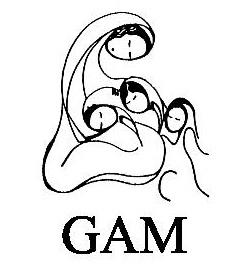
Member(s)
Grupo de Apoyo Mutuo (GAM)
on 30 April 2020
Mandate and goals: Organization of relatives of missing persons illegally detained which works for justice, investigating past cases, opening legal proceedings against the national system and the human rights system. Kind of actions: We work for justice, for the strengthening of the institutions linked to the criminal investigation and against the death penalty. Actions aiming […]
2020
Guatemala
Document(s)
Ripoti Ya Kimataifa Ya Amnesty International Hukumu Za Kifo Na Watu Walionyongwa 2022
By Amnesty International, on 16 May 2023
2023
NGO report
More details See the document
Utafiti wa Amnesty International kuhusu matumizi ya adhabu ya kifo mwaka wa 2022 ulionyesha kwambakulikuwa na ongezeko kubwa la idadi ya watu wanaojulikana kuwa walinyongwa duniani, likiwemo ongezekokubwa la watu walionyongwa kutokana na makosa yanayohusiana na dawa za kulevya
- Document type NGO report

Member(s)
Academic University for Non-Violence and Human Rights – AUNOHR
on 14 July 2023
AUNOHR, www.aunohr.edu.lb, the Academic University for Non-Violence and Human Rights, is a non-profit independent institution of higher education, first-of-its-kind in Lebanon and the region and unique worldwide. Founded in 2014 after a pilot project (2009-2011), its main objectives are both: academic professionalism and for social change, starting with the personal development of every student. The […]
2023
Lebanon
Article(s)
167 Ugandan death row inmates saved from gallows
on 19 September 2010
Recent figures show that a January ruling by the Ugandan supreme court making it illegal to keep people on death row for more than three years has saved 167 lives.
2010
Cruel, Inhuman and Degrading Treatment and Punishment
Uganda
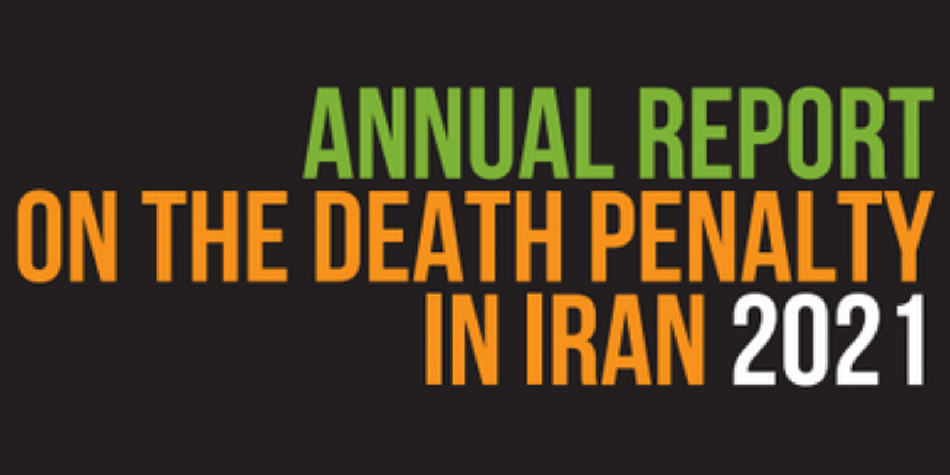
Article(s)
Death Penalty in Iran: Sharp Increase in Executions
By Anissa Aguedal, on 10 June 2022
An alarming situation On 28 April 2022, Iran Human Rights (IHR) and Ensemble contre la peine de mort (ECPM) released their 14th Annual Report on the Death Penalty in Iran, revealing an increase in the number of executions in 2021. At least 333 people were executed and 83,5% of these executions were not announced by […]
2022
Iran (Islamic Republic of)
Document(s)
Defending Women and Transgender Persons Facing Extreme Sentences: A Practical Guide
on 14 January 2022
2022
Legal Representation
Legal Representation
Women
frMore details See the document
Written by a team including experts in the fields of capital defense, gender rights, gender-sensitive mitigation and the rights of transgender persons, the guide includes sections on gender-based violence, women’s mental health, prison conditions, discrimination in the legal system, working with the media, and how to build a gender-sensitive team. It also includes a step-by-step gender-sensitive interview protocol that builds on resources developed by the anti-violence community and is tailored to the needs of defense teams.
- Document type Legal Representation
- Themes list Legal Representation / Women
- Available languages Défendre les femmes et les personnes transgenres confrontées à des peines extrêmes
Document(s)
The Death Penalty in 2023: Year End Report
By The Death Penalty Information Center (DPIC), on 25 January 2024
2024
NGO report
Public Opinion
United States
More details See the document
Published on December 01, 2023.
Innocence cases dominated much of the media’s attention on death penalty cases in 2023. While these prisoners were largely unsuccessful in the courts, there was unprecedented support for their claims from state legislators, prosecutors, judges, and other elected officials, some of whom declared themselves newly disillusioned with use of the death penalty in their state. This year is the 9th consecutive year with fewer than 30 people executed (24) and fewer than 50 people sentenced to death (21, as of December 1). The 23 men and one woman who were executed in 2023 were the oldest average age (tied with 2021) and spent the longest average number of years in prison in the modern death penalty era before being executed. As in previous years, most prisoners had significant physical and mental health issues at the time of their executions, some of which can be attributed to the many years they spent in severe isolation on death row. Continued difficulties obtaining lethal injection drugs led some states to explore new, untested methods of execution or revive previously abandoned methods. Other states enacted or continued pauses on executions while the state’s method of execution was studied.
- Document type NGO report
- Countries list United States
- Themes list Public Opinion
Document(s)
The Death Penalty in 2022: Year End Report
By Death Penalty Information Center, on 16 December 2022
2022
NGO report
United States
More details See the document
In a year awash with incendiary political advertising that drove the public’s perception of rising crime to record highs, public support for capital punishment and jury verdicts for death remained near fifty-year lows. Defying conventional political wisdom, nearly every measure of change — from new death sentences imposed and executions conducted to public opinion polls and election results — pointed to the continuing durability of the more than 20-year sustained decline of the death penalty in the United States.
The Gallup crime survey, administered in the midst of the midterm elections while the capital trial for the 2018 mass shooting at Marjory Stoneman Douglas High School in Florida was underway, found that support for capital punishment remained within one percentage point of the half-century lows recorded in 2020 and 2021. The 20 new death sentences imposed in 2022 are fewer than in any year before the pandemic, and just 2 higher than the record lows of the prior two years. With the exception of the pandemic years of 2020 and 2021, the 18 executions in 2022 are the fewest since 1991.
- Document type NGO report
- Countries list United States
Document(s)
Children who are Impacted by a Family Member’s Death Sentence or Execution: Information for Mental Health Professionals
By National Child Traumatic Stress Network (NCTSN), Texas after violence project, Clinical and Support Options, on 11 December 2021
2021
Working with...
Juveniles
More details See the document
This tip sheet provides some guidelines for mental health professionals who may encounter or work with children and families related to individuals who have been sentenced to death or executed.
- Document type Working with...
- Themes list Juveniles
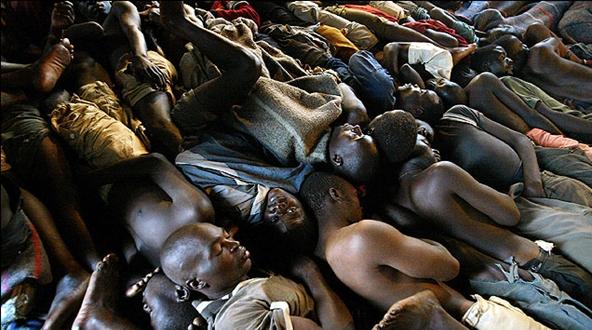
Article(s)
Malawi – five years after abolishing the mandatory death penalty
By Emile Carreau, on 19 September 2012
In 2007 abolitionists celebrated when the High Court of Malawi abolished the mandatory death penalty. In what become known as the Kafanteyeni ruling the mandatory death penalty was deemed by the bench as unconstitutional as it amounts to an arbitrary deprivation of life, denies an accused the right to a fair trial and the right to be free from inhuman and degrading treatment.
2012
Malawi

Article(s)
Guatemala abolishes the death penalty for ordinary crimes
By World Coalition Against the Death Penalty, on 31 October 2017
On October 24, the Constitutional Court of Guatemala has abolished the death penalty in civil cases.
2017
Guatemala

Article(s)
Burkina Faso has joined the global trend toward abolition of the death penalty in Africa
By International Federation of Human Rights (FIDH), on 6 June 2018
On 31 May, the Burkinabe Parliament abolished the death penalty by adopting a new criminal code that excludes it from the arsenal of sentences regardless of crimes considered and circumstances in which they were committed. Thus, Burkina Faso become the 144th States in the World and the 40th African State abolitionist in law and in practice. Our organizations welcome this major step which strengthens the Burkinabe legal framework for the protection of human rights and is part of regional and international movement in favour of the abolition of this inhuman, ineffective and irreversible punishment.
2018
Burkina Faso
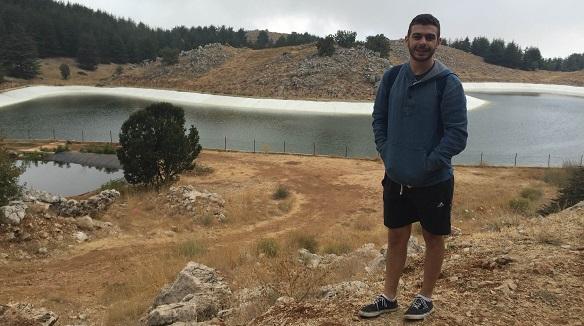
Article(s)
If I do not accept that a terrorist kills me, I do not accept either to kill a terrorist
By Tiziana Trotta, on 18 October 2016
Khachig Ghosn is a 22-year-old student of social work at the Lebanese University. Three years ago, he witnessed an explosion in Beirut. Despite this dramatic experience, he is against the use of the death penalty and he is convinced that capital executions have no deterrent effect on terrorism.Ghosn is aware that changes in his country take a very long time, but he has a positive long-term vision and hopes that the death penalty will be abolished.
2016
Lebanon
Murder Victims' Families
Terrorism
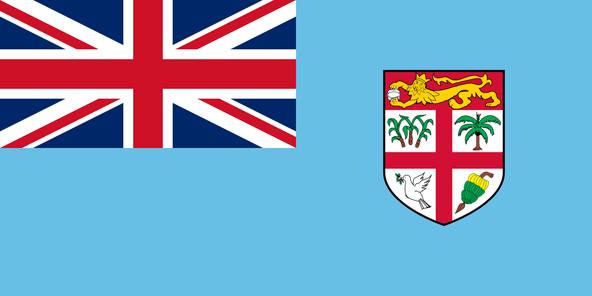
Article(s)
Fiji abolishes death penalty for all crimes through amendment to military law
By Auréie Plaçais, on 23 February 2015
On 9 February 2015, Attorney General Aiyaz Sayed-Khaiyum introduced in parliament the Republic of Fiji Military Forces amended Bill 2015, a one page bill to abolish the death penalty provision.
2015
Fiji

Member(s)
Comité des Observateurs des Droits de l’Homme (CODHO)
on 30 April 2020
On 1 July 1997 a group of lawyers, economists and political scientists from the Democratic Republic of Congo (DRC) held a meeting following the massacre of children by militiamen in North Kivu in the east of the country. Revolted by this unspoken tragedy, they decided to set up the Committee of Human Rights Monitors (Codho). […]
2020
Democratic Republic of the Congo

Member(s)
Coalizione italiana contro la pena di morte
on 30 April 2020
The Italian Coalition to Abolish the Death Penalty (ICADP) was established to form a network between both Italian and foreign groups, associations, movements, and individuals that oppose capital punishment, and to coordinate their work and efforts. The ICADP holds talks about the death penalty around the world, spreads information and promotes campaigns. It is especially […]
Italy
Document(s)
Facts and Figures 2008
By World Coalition against the death penalty , on 10 October 2008
2008
Campaigning
Trend Towards Abolition
frMore details See the document
Facts and Figures 2008
- Document type Campaigning
- Themes list Trend Towards Abolition
- Available languages Faits et chiffres 2008
Page(s)
Newsletter
on 22 June 2020
With our monthly newsletter, make sure that you do not miss out on the latest information on the abolition of the death penalty. Subscribe to receive the latest articles published on the site, new documents available in the library as well as the agenda of our members. You can also sign up for our quarterly […]
2020

Member(s)
Comitato Paul Rougeau
on 30 April 2020
Paul Rougeau was sentenced to death in Texas for the murder of an off-duty policeman. He always maintained he was innocent. In 1992, after he had spent 15 years on death row, the Italian newspaper Il Manifesto printed a letter by Paul Rougeau on its front page. A group of Italian citizens then decided to […]
2020
Italy
Document(s)
Palestine – Committee Against Torture – Death Penalty – June 2022
on 21 July 2022
2022
NGO report
World Coalition
State of Palestine
More details Download [ pdf - 1747 Ko ]
The State of Palestine on 1 April 2014 ratified the Convention against Torture and Other Cruel, Inhuman or Degrading Treatment or Punishment. On 28 December 2017, the State of Palestine signed the Optional Protocol to the Convention against Torture and Other Cruel, Inhuman or Degrading Treatment or Punishment. On 18 March 2019, the State of Palestine also ratified the Second Optional Protocol to the International Covenant on Civil and Political Rights (ICCPR), which aims to abolish the death penalty. The State of Palestine has not yet abolished the death penalty. Indeed-as described herein-the 14 June 2007 split in power between the Palestinian Authority in Ramallah in the West Bank under President Abbas, and the Hamas movement in Gaza, has been followed by many documented executions in Gaza without the requisite signature of President Abbas, and Gazan military courts conduct trials of civilians, where they can be sentenced to death.
This report considers the prevalence of torture and other issues ancillary to the death penalty itself: confessions under torture or degrading treatment, due process, access to legal counsel, death-row conditions, and methods of execution.
- Document type NGO report / World Coalition
- Countries list State of Palestine

Member(s)
Free Mumia! French Support Group
on 30 April 2020
Founded in 1995, the French collective “Libérons Mumia” brings together about a hundred organisations and public authorities: human rights associations, trade unions, political parties, local and regional collectives and local authorities. His objective is to obtain a new trial allowing the Black American journalist Mumia to defend his innocence and regain his freedom. Mumia Abu-Jamal […]
2020
France

Member(s)
Prison Insider
on 30 April 2020
Prison Insider is a French independent NGO. Prison Insider’s main mission is to raise awareness about the conditions of detention and to promote the rights and dignity of people deprived of liberty, everywhere in the world. To reach its aims, the organisation primarily operates an information website. Prison Insider’s vocation is to make available and […]
France
Document(s)
(Not) Talking about Capital Punishment in the Xi Jinping Era
By Tobias Smith, Matthew Robertson and Susan Trevaskes, on 1 September 2022
2022
Academic report
China
More details See the document
An investigation into the death penalty in the People’s Republic of China in the Xi Jinping era (2012–) shows that unlike previous administrations, Xi does not appear to have articulated a signature death penalty policy. Where policy in China is unclear, assessing both the quality and frequency of discourse on the topic can provide evidence regarding an administration’s priorities.
This article was first published in Crime Justice Journal: https://www.crimejusticejournal.com/issue/view/119
- Document type Academic report
- Countries list China
Document(s)
Legislative Expansion and Judicial Confusion: Uncertain Trajectories of the Death Penalty in India
By Anup Surendranath and Maulshree Pathak, on 1 September 2022
Academic report
India
More details See the document
The numbers and the politics of the death penalty in India tell very different stories, presenting complicated narratives for its future. The public reaction to instances of sexual violence and other offences over the last decade and the consequent political response has significantly strengthened the retention and expansion of the death penalty. This is reflected from the fact that that of all the death sentences that district courts impose, only about 5 percent get confirmed in India’s appellate system. However, does this mean there is growing scepticism about the death penalty in the Supreme Court of India? Unfortunately, the answer is far from simple. An assessment of the death penalty in India’s appellate courts during the last decade will demonstrate that a crime-centric approach has hindered any principled discomfort with the death penalty or the manner of its administration. In particular, the Supreme Court has faltered in high-profile death sentence cases (i.e., offences against the state and sexual violence cases), and its track record of commutations has very little to do with principled considerations on sentencing. This paper argues that the political and judicial imagination of the death penalty, as a necessary part of the response to crime, creates significant and unique challenges for the path towards abolition.
This article was first published in Crime Justice Journal: https://www.crimejusticejournal.com/issue/view/119
- Document type Academic report
- Countries list India

Article(s)
Notes on the Supreme Court Trial in the Chen Fu-hsiang Case: Life or Death Debates in the Style of ChatGPT
By Lin Tzu-Wei (Legal Director of the Taiwan Alliance to End the Death Penalty), on 14 July 2023
Article first published in april on TAEDP’s website Return of life or death debates Following the previous oral arguments on death penalty cases at the Supreme Court in 2021, another life or death debate took place in April this year. This time, I had the opportunity to attend the oral arguments of the “Chen Fu-hsiang […]
2023
Taiwan
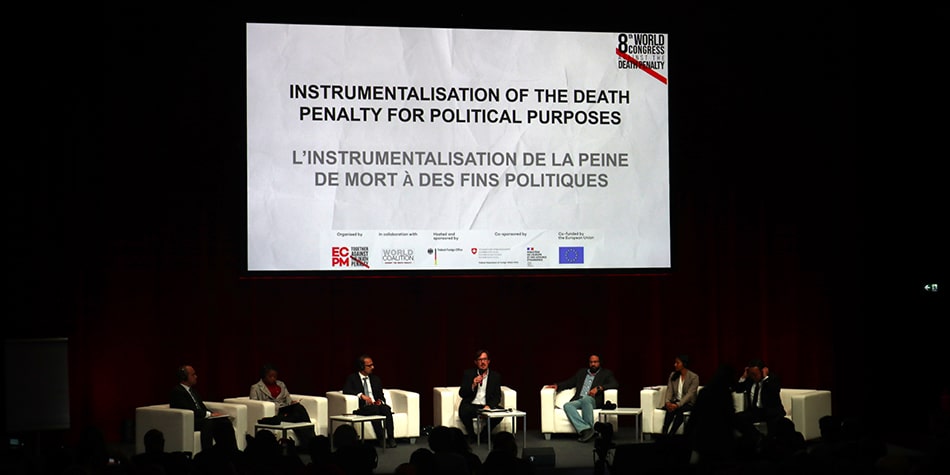
Article(s)
How the Death Penalty is Politicized: A Reflection on the 8th World Congress Against the Death Penalty
By Dunia Schaffa, on 27 January 2023
During the 8th World Congress Against the Death Penalty, in Berlin Germany, the phrase “the death penalty is being used as a political tool” was used frequently – in panels, in round tables, in speeches, even amongst the participants getting a coffee in between Congress events.
2023
Iran (Islamic Republic of)
United States
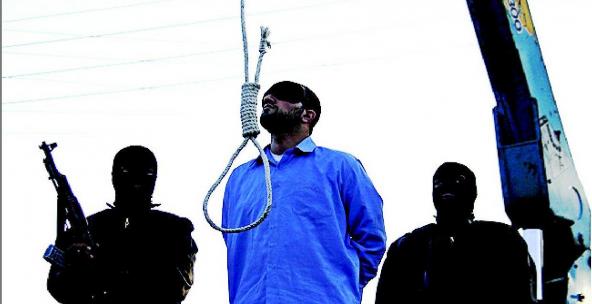
Article(s)
Highest execution numbers in Iran in 10 years
By Mahmood Amiry-Moghaddam, on 13 March 2012
Iran Human Rights has published its annual report on the death penalty in Iran in 2011. IHR’s international spokesperson Mahmood Amiry-Moghaddam says the Iranian authorities are keeping the number of executions high because they use the death penalty as a political tool.
2012
Drug Offenses
Iran (Islamic Republic of)
Juveniles
Women
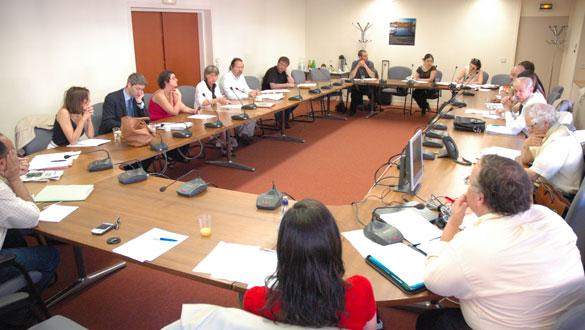
Article(s)
Statutes of the World Coalition Against the Death Penalty
on 26 June 2011
Amended by the General Assembly on June 26, 2011
2011
Article(s)
World Day campaign launched!
on 13 August 2007
The countdown to the fifth World Day Against the Death Penalty on October 10 has begun. It will focus on the proposed resolution against capital punishment to be discussed in the UN this autumn.
2007
Moratorium
Article(s)
Youths must stand up against the death penalty!
on 17 September 2007
The Federation of Liberal Students (FEL), a Belgian political organisation, has just joined the World Coalition. FEL president Arnaud Van Praet explains his organisation’s mobilisation against capital punishment.
2007
Belgium
Article(s)
Abolition in the US: what role for overseas activists?
on 3 February 2008
As part of its 2008 annual conference, the National Coalition to Abolish the Death Penalty (NCADP) organised a brainstorming session to explore the question: “How can the international community support us in our efforts to abolish the death penalty in the US?”
2008
Clemency
Public Opinion
United States
Article(s)
Support grows for Davis as his execution is stayed
on 26 October 2008
Troy Davis’s execution was stayed on October 23, four days before he was scheduled to die, as activists took action on his behalf all over the world.
2008
United States
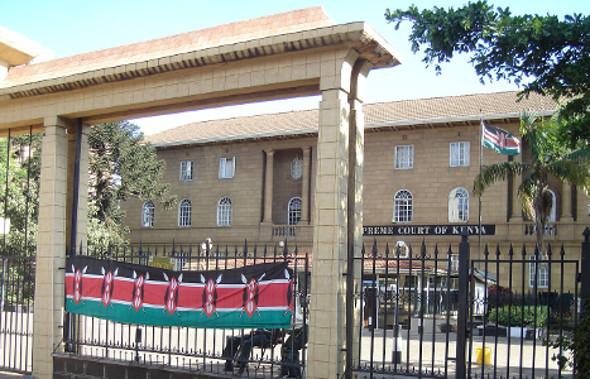
Article(s)
The Supreme Court of Kenya declares the mandatory death penalty unconstitutional
By Thalia Gerzso, on 23 January 2018
On December 14, 2017, the Supreme Court of Kenya declared the mandatory death penalty unconstitutional. This landmark decision puts an end to several years of uncertainties and constitutes an additional step towards the abolition of the death penalty in the country.
2018
Kenya
Article(s)
Global outrage at Iranian juvenile execution
on 6 May 2009
Human rights organisations and governments worldwide have slammed the Iranian authorities for the illegal execution of Delara Darabi, a young woman convicted of a murder committed when she was 17.
2009
Innocence
Iran (Islamic Republic of)
Juveniles
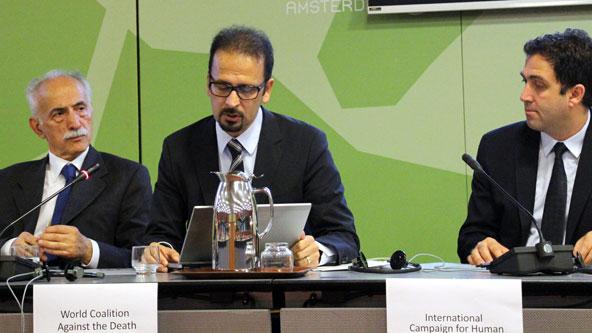
Article(s)
NGOs join forces to tackle capital punishment at Iran’s rights review
By Thomas Hubert, on 30 October 2014
Several World Coalition members are among organisations co-ordinating their efforts to help the international community put pressure on Iran over its use of the death penalty.
2014
Iran (Islamic Republic of)
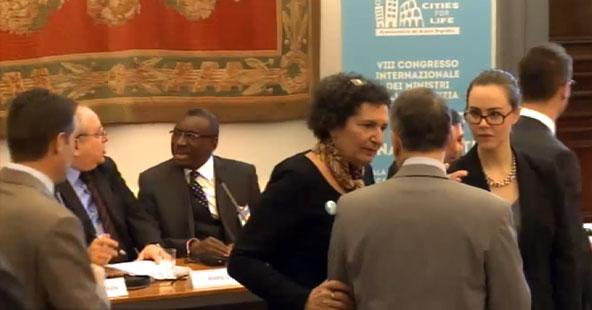
Article(s)
Justice ministers meet on the eve of Cities Against the Death Penalty
By Elizabeth Zitrin (World Coalition vice-president), in Rome, on 1 December 2013
More than 20 ministers of justice met in Rome for the annual conference on the abolition of the death penalty organised by the Community of Sant’Egidio and heard harrowing testimonies from courageous activists.
2013
Afghanistan
Belarus
Costa Rica
El Salvador
Italy
Philippines
Senegal
Switzerland
United States
Article(s)
Mongolian president calls for abolition
on 18 January 2010
In a vibrant speech before the parliament on January 14, President Elbegdorj Tsakhia of Mongolia developed all the arguments put forward by the abolitionist community.
2010
Clemency
Mongolia
Moratorium

